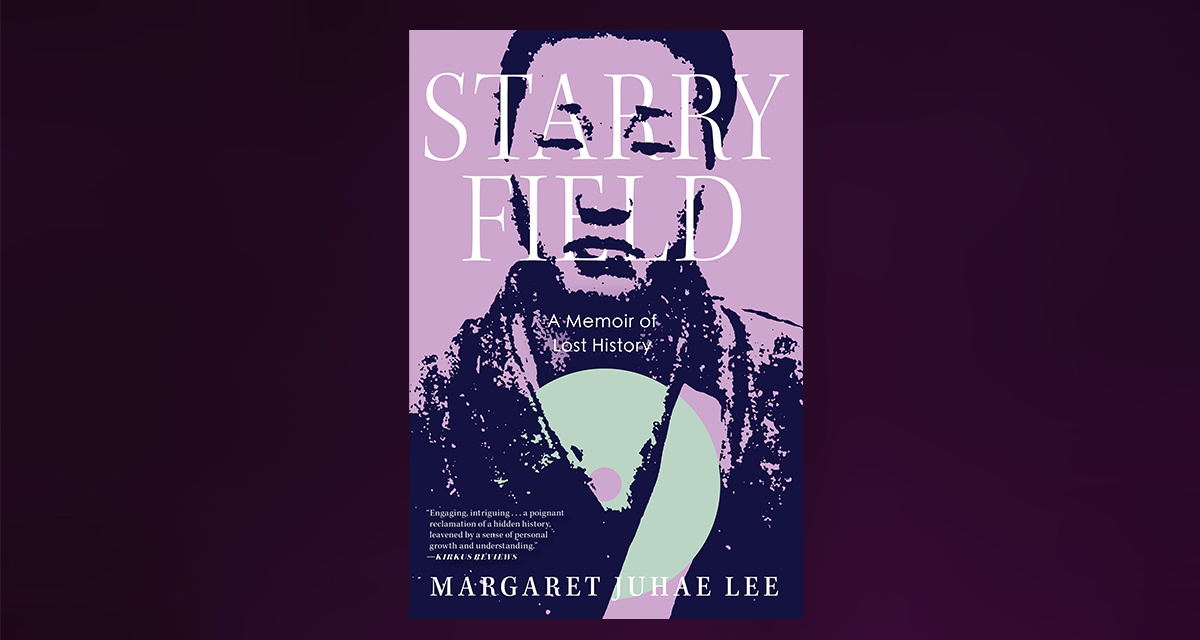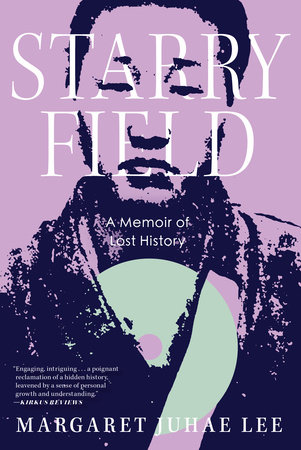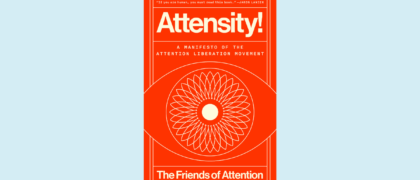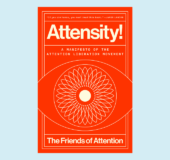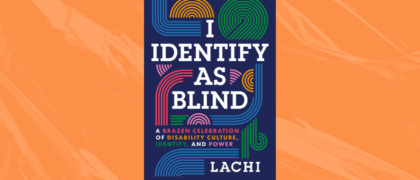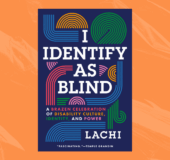Starry Field is a poignant memoir by journalist Margaret Juhae Lee, who sets out on a search for her family’s history lost to the darkness of Korea’s colonial decades, and contends with the shockwaves of violence that followed them over four generations and across continents.
Preface
ORIGIN STORY
Once upon a time there was a girl who was born in a country where she didn’t feel at home. She looked different than everyone else, she ate different foods. People asked her questions like “Where are you from?” When she answered “Houston,” they would ask, “No, where are you really from?”
Ten years old, and the girl traveled to the country of her parents’ birth—she didn’t feel at home there, either. She could understand some of what people were saying, but she could only speak in phrases, like a toddler. Her grandmother had taught her the language of her forebearers when she was little, but her parents spoke English to her at home, at the advice of the pediatrician who said, “She will fall behind in school if you don’t.”
The girl grew up, forgot her grandmother’s language, went to college, tried a couple of careers, and settled on journalism. She decided to investigate the mystery of the grandfather she never knew, the one who went to prison and died when her father was a baby. She started by asking her grandmother questions, questions her grandmother didn’t want to answer.
The girl decided to visit the country of her parents’ birth again, this time alone. She wanted to solve the mystery of who her grandfather had been by finding the police and interrogation records her grandmother burned during the Korean War. The records that branded him as a teenage Communist revolutionary who protested Japanese rule.
After years of classes, the girl could now read and speak a bit of her parents’ language. However, she realized that she needed to hire a translator and speak English to be taken seriously by the men who could help her find her grandfather’s records.
The girl eventually found her grandfather’s records, even though they were not where they were supposed to be. She brought them back to her father in the United States. They were the best present she could ever give him—except for grandchildren. She began to write a book about her search for lost history but put it down when life intervened. She picked it up again but was unable to finish it before her parents died.
***
WHEN OUR DAUGHTER KIKI WAS in kindergarten, I’d climb into her loft bed to do bedtime. My husband Steve exceeded the weight limit, so I would snuggle in with Kiki while he read to our son Owen, whose bed was closer to the ground. Most of the time I forgot to bring a book, so I made up stories to tell her.
There were tales of the Wonder Twins, siblings I remembered from childhood cartoons who harnessed their superpowers by touching their rings together. The twins rescued cats from trees, walked old ladies across the street. They cooperated instead of bickered, unlike Kiki and Owen.
“The Ten Thousand Bears” was a clear rip-off of Goldilocks and the Three Bears, my favorite childhood story, except in my telling Goldilocks had dark hair and wandered off from home to discover an enormous cave with ten thousand beds to choose from instead of three. In the end, Goldilocks decided to leave her birth family and live among the community of bears since she was so lonely at home.
They all lived happily ever after.
WHEN THE KIDS WERE IN preschool, I started again on my book about my grandfather. The one I abandoned when I got pregnant. I rewrote the whole thing off the top of my head during a generative writing workshop that met once a week—no notes, research, or outlines to guide me. I just wrote what flowed out from my hand to the pen and onto the lined paper of my giant spiral-bound notebook. All that material had soaked in since 2000, the year I traveled to Korea in search of my grandfather’s prison records. Back then, I uncovered facts about my grandfather Lee Chul Ha’s short life—his interrogation transcripts, the list of books he read while imprisoned, the secret code he devised to communicate with his Communist comrades—but what permeated my very being were the stories my grandmother, Halmoni, told me before she died. They embedded themselves into my body and became part of who I was—a granddaughter, a daughter, and finally, a mother.
I needed to release them from my body.
So here it is, Kiki and Owen, here’s my origin story. The one that took me over twenty years to write. There were, of course, interruptions. I moved back to the Bay Area after returning from Korea. My first agent left the publishing business. I met your father. We got married, had Owen and then, two years later, Kiki. Then came busy family life—thousands of Lego pieces, hundreds of soccer practices, long drives to Portland to visit Grandma and Grandpa, trips to Korea, lingering sicknesses, untimely deaths, crash courses in finance and estate law, and the almost unbearable gravity of grief.
My story is one I hope you can let seep into your being. For my story is our story, and involves the reclamation of the lives forgotten and seemingly buried forever in our ancestral homeland.
Copyright © 2024 by Margaret Juhae Lee. All rights reserved. No part of this excerpt may be reproduced or reprinted without permission in writing from the publisher.
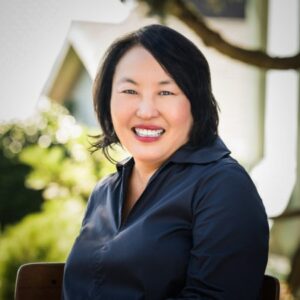 Margaret Juhae Lee is an Oakland-based writer and a former literary editor of The Nation magazine. She has been the recipient of a Bunting Fellowship from Harvard University, and a Korean Studies Fellowship from the Korean Foundation. She is also a Tin House scholar, and has been awarded residencies at the Mesa Refuge, the Anderson Center, and Mineral School. In 2020, she was named “Person of the Year” by the Sangcheol Cultural Welfare Foundation in Kongju, South Korea, for her work in honoring her grandfather, Patriot Lee Chul Ha. Her articles, reviews, and interviews have been published in The Nation, Newsday, Elle, ARTnews, The Advocate, The Progressive and The Rumpus.
Margaret Juhae Lee is an Oakland-based writer and a former literary editor of The Nation magazine. She has been the recipient of a Bunting Fellowship from Harvard University, and a Korean Studies Fellowship from the Korean Foundation. She is also a Tin House scholar, and has been awarded residencies at the Mesa Refuge, the Anderson Center, and Mineral School. In 2020, she was named “Person of the Year” by the Sangcheol Cultural Welfare Foundation in Kongju, South Korea, for her work in honoring her grandfather, Patriot Lee Chul Ha. Her articles, reviews, and interviews have been published in The Nation, Newsday, Elle, ARTnews, The Advocate, The Progressive and The Rumpus.

